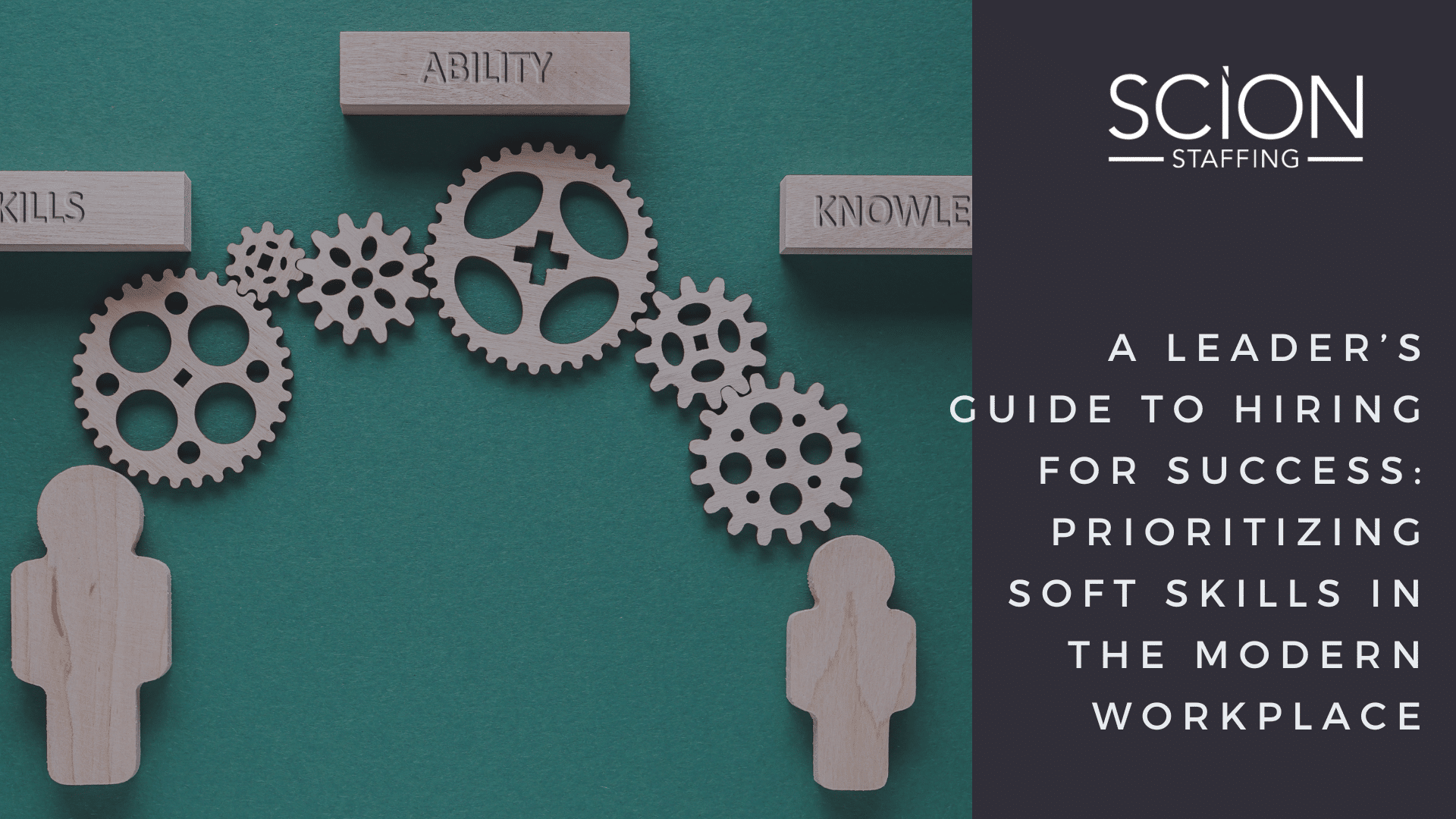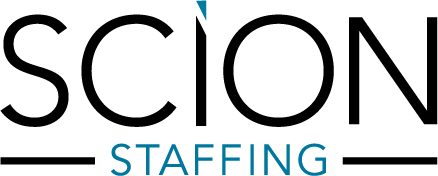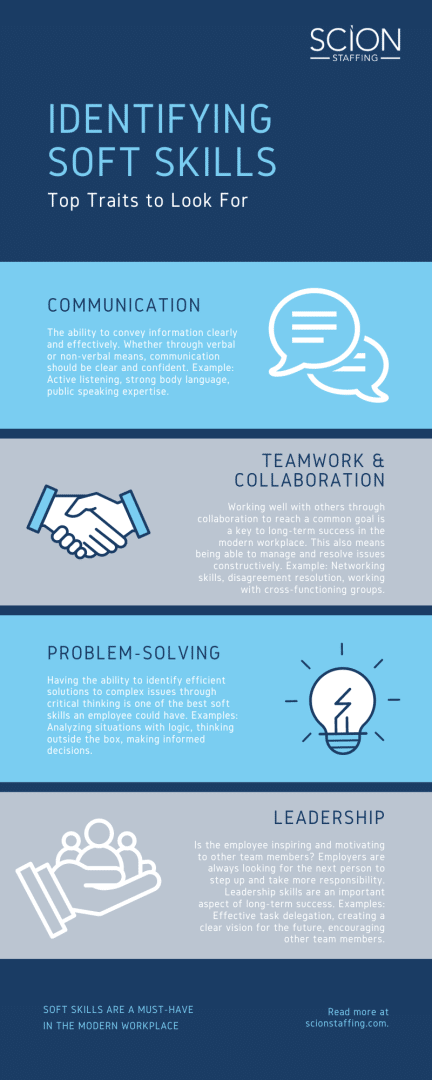
27 Sep A Leader’s Guide to Hiring for Success: Prioritizing Soft Skills in the Modern Workplace
In today’s evolving workplace, the emphasis on soft skills has never been more crucial—whether you’re seeking a new job, advancing in your current role, or hiring top talent for your organization. It’s not just about the technical expertise you bring to the table, but also how effectively you work and collaborate. Soft skills—such as communication, teamwork, and problem-solving—are increasingly recognized as essential for long-term success. In fact, nine out of ten global executives acknowledge the growing importance of these interpersonal abilities. Ready to elevate your career or make the perfect hire? Join us as we explore why soft skills are the foundation for success in the modern workforce.
What are Soft Skills?
Soft skills, often referred to as “people skills” or “interpersonal skills,” are the attributes and behaviors that enable individuals to interact effectively and harmoniously with others. Unlike technical or hard skills, which are specific, teachable abilities such as coding or accounting, soft skills are more subjective and harder to quantify.
Here are the primary categories and examples of these skills:
Categories of Soft Skills
- Communication Skills
- Teamwork and Collaboration
- Problem-Solving Skills
- Adaptability
- Leadership Skills
- Emotional Intelligence
- Time Management
Examples of Soft Skills
- Communication: This is the ability to convey information clearly and effectively. According to a survey, 58% of respondents put down communication skills as the most important soft skill in the workplace. This can be accomplished through clear and confident verbal communication, non-verbal communication like effective body language, being able to actively listen and understand, and being able to deliver presentations effectively or speak in public settings.
- Teamwork: Being able to work well with others through collaboration to reach a common goal, being able to manage and resolve disagreements constructively, as well as build and maintain professional relationships through networking.
- Problem-Solving: One of the most important soft skills for certain roles, this is the ability to identify solutions to complex issues by way of critical thinking to analyze situations logically, thinking outside the box to find innovative solutions, and being able to make informed choices.
- Adaptability: How well are you able to adjust to new conditions and environments? Having this skill means you have the flexibility and willingness to change tactics or methods, you can quickly learn new skills or information and being able to bounce back stronger from setbacks and challenges.
- Leadership: Being a leader means that this individual can guide and inspire others. This can be shown through the ability to motivate and encourage others, being able to delegate tasks effectively, and being able to create and share a clear vision for the future.
- Emotional Intelligence: Understanding and managing your own emotions as well as the emotions of others through self-awareness, self-regulation, and empathy.
- Time Management: Efficiency in managing time to enhance productivity by means of prioritization by focusing on the most important tasks, organizing tasks and setting deadlines, and establishing clear and achievable goals.
Hard Skills vs. Soft Skills: What’s the Difference?
Hard skills are the technical abilities and knowledge that can be measured and quantified. They’re often learned through formal education, training, or experience. Some examples of hard skills include:
- Technical skills: Programming, data analysis, software development
- Academic skills: Writing, reading, math
- Industry-specific skills: Accounting, marketing, engineering
Soft skills are interpersonal and intrapersonal abilities that are more difficult to measure. They’re often developed through experience, practice, and self-awareness. While hard skills are essential for many jobs, soft skills are often what sets top performers apart. They help individuals build strong relationships, navigate complex situations, and achieve their goals. In today’s competitive job market, possessing both hard and soft skills is crucial for career success.
Soft Skills Employers Want in a Candidate
Today’s employers place a high value on candidates who possess strong soft skills. According to various studies, here are some of the most important soft skills employers are looking for:
- Communication: Can the candidate articulate thoughts clearly and confidently in both oral and written forms? Do they listen effectively and provide constructive feedback? Can they engage in meaningful conversations with colleagues and clients?
- Team Collaboration: Can they work effectively within diverse teams? Do they help foster a cooperative and inclusive team environment? Do they share credit and responsibilities equally?
- Leadership Qualities: Are they inspiring and motivating to other team members? Do they make informed and timely decisions? Do they provide clear direction and vision?
- Work Ethic: Do they demonstrate reliability and dependability? Do they show a strong commitment to reaching their goals and meeting deadlines? Do they exhibit professionalism?
- Emotional Intelligence: Does the candidate understand and manage their own emotions effectively? Can they recognize and empathize with others’ emotions? Do they maintain positive relationships with their colleagues?
Can Soft Skills Be Learned and How Can They Be Measured?
While some people may naturally possess certain soft skills, many can be developed through intentional practice and training. Here are some of the ways to cultivate soft skills:
- Workshops and Seminars: Attending sessions that are focused on specific skills allows you to participate in interactive exercises and role-playing scenarios. These are a great way to gain insights from experienced trainers and industry experts.
- Online Courses: Consider enrolling in courses that offer soft skills training. Utilize platforms like Coursera, Udemy, and LinkedIn Learning to access a wide range of topics from effective communication to leadership.
- Mentorship: The guidance and mentorship of experienced professionals is a valuable way to gain these special skills. It can help you develop personalized development plans and receive feedback and support from mentors.
- Self-Assessment: Regularly evaluate your skills and identify areas for improvement. Use a reflection journal to track your progress and set specific, measurable, achievable, relevant, and time-bound (SMART) goals.
Measuring Soft Skills
Soft skills can be a bit more challenging to measure than technical skills, but there are some effective methods to assess them:
- Behavioral Interviews: Employers can measure these skills in an interview setting by asking candidates to provide examples of how they handled specific situations. They can pose questions about past experiences and problem-solving in order to evaluate the responses based on clarity, relevance, and outcome.
- Peer Reviews: Peer reviews are a great way to measure how coworkers see another’s skills. Employers can gather feedback from colleagues and team members, conduct a 360-degree feedback survey, and analyze feedback for patterns and any areas for improvement.
- Performance Evaluations: By regularly reviewing an employee’s job performance, employers can assess the employee based on set performance standards and objectives. This allows them to provide constructive feedback and create development plans.
- Self-Assessment Tools: To better measure your own soft skills, utilize questionnaires and surveys to self-evaluate. Implement tools like Myers-Briggs Type Indicator (MBTI) or Emotional Intelligence Quotient (EQ) to reflect on personal strengths and areas for growth.
How Employers Can Provide Soft Skills Training to their Employees
Employers who invest in soft skills training and continuous learning for their employees often see significant benefits. In-house workshops, online training courses, and mentorship programs are all important programs that employers can invest in to not only help train their existing talent but retain them to stay successful. Learning Management Systems (LMS) can also be implemented to track and manage training programs for employees. These programs help management monitor progress and completion rates, as well as provide access to a centralized repository of learning resources.
Types of Soft Skills Training Programs
- Communication Training: Communication training sessions focus on improving social skills like verbal and non-verbal communication. They help develop effective public speaking and presentation skills, as well as enhance active listening and feedback techniques. Participants can also improve their written communication and email etiquette.
- Leadership Development: Leadership development programs can prepare individuals for leadership roles, cultivate strategic thinking and decision-making skills, and help foster emotional intelligence and empathy in leadership. Participants can develop important team-building and motivational techniques.
- Emotional Intelligence Training: These programs help build self-awareness and empathy. Participants are taught techniques for managing stress and emotions, how to improve interpersonal relationships, and proper conflict resolution techniques. These courses can help foster a positive work environment through empathy and understanding.
- Team-Building Activities: Team-building activities are a great way to promote collaboration and teamwork. Employers can facilitate group exercises, team projects, and organize retreats to encourage cross-functional collaboration and communication.
The Importance of Soft Skills in the Modern Workplace
Soft skills contribute to a positive and productive work environment. According to Forbes and a study by Deloitte Insights, 84% of the workforce insists that potential employees must demonstrate soft skills. These skills help foster aspects of the modern workplace like effective communication, strong team dynamics, and better conflict resolution. This allows organizations to reduce misunderstandings and errors, improve overall morale and job satisfaction amongst workers, and minimize disruptions while maintaining or improving productivity.
As employers, it is important to identify employees in the workforce who have strong soft skills. These employees are more likely to:
- Agility to Adapting: Quickly adjusting to new situations and challenges. The employee maintains their level of performance during periods of transitions and can embrace new technologies or innovations.
- Solve Problems Efficiently: Identifying and addressing issues effectively shows that the employee has enhanced decision-making and critical thinking prowess. Strong problem-solving skills lead to increased productivity and efficiency.
- Lead Successfully: A key component to leadership is the ability to inspire and guide others towards achieving their goals and professional success. This skill can help foster a motivated and engaged workforce that will drive organizational success and continued growth.
Soft skills are no longer optional in the modern workplace—they are essential. Whether you are an employer looking to enhance your team’s capabilities or a professional aiming to improve your employability, investing in soft skills training can yield significant dividends and play a pivotal role in talent retainment. By fostering a culture of continuous improvement and providing the right training opportunities, organizations can unlock the full potential of their employees and drive sustained success.
Partner with Scion Staffing to Secure Candidates Who Bring Essential Soft Skills to Your Team
At Scion Staffing, we understand the importance of soft skills in finding the right fit for your organization. Our expertise in recruiting top-tier talent ensures that you get candidates who not only have the technical skills but also the soft skills needed to drive business success. From temporary roles to leadership positions, our team of national recruiters can navigate the complex challenges that your organization faces and give you a competitive edge in hiring. Contact us today to learn how we can help you find impactful candidates who will grow with your organization.
About the Author
Patrick Chiotti (he/him) is an accomplished SEO writer and is currently the Marketing and Communications Specialist at Scion Staffing, bringing years of experience in SEO knowledge and a passion for writing to the Scion team. With additional experience in customer service roles, retail, and accounting, Patrick brings a unique set of knowledge and skills to his role while sharing the passion to continue learning about a wide range of topics so he can share his voice to a larger audience. Outside of Scion, Patrick spends his time as a football coach at the high school level and is passionate about teaching the game, while remaining a student to it. He is also a husband and father, and enjoys fitness, as well as a passion for cooking amazing food.




